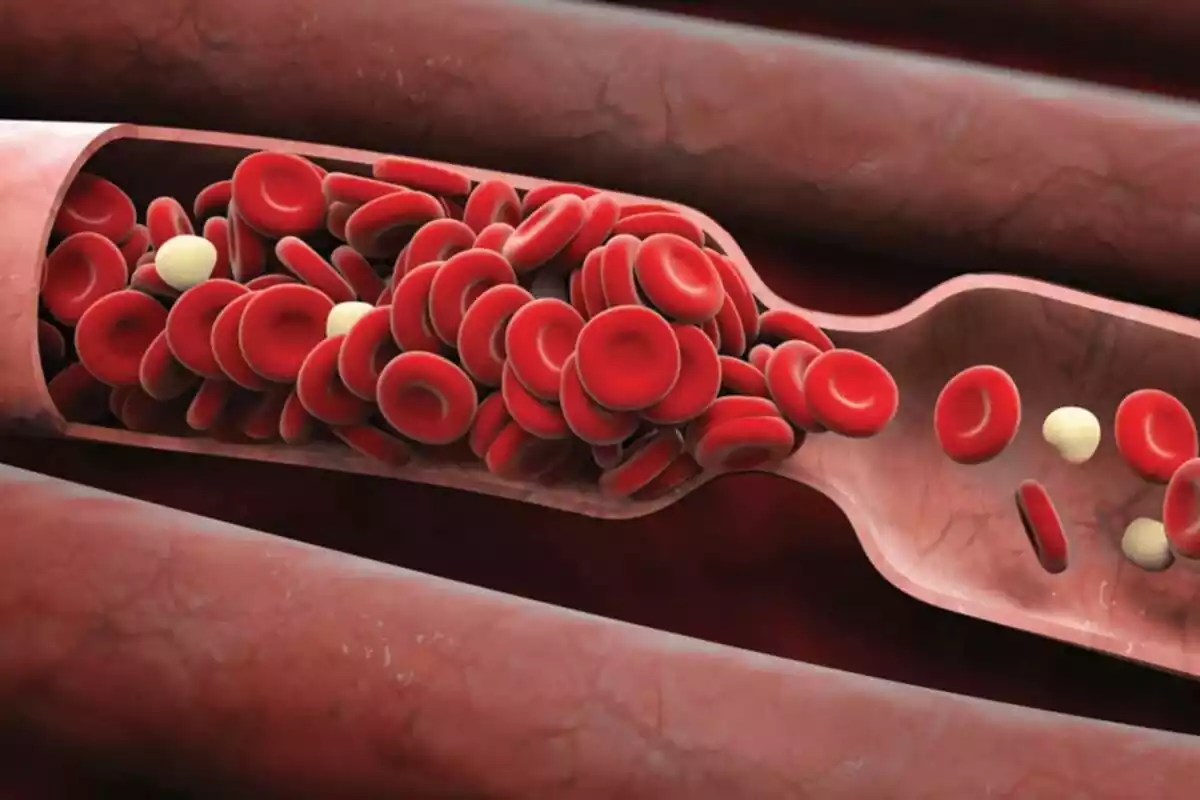AstraZeneca's vaccination is temporarily suspended in several countries around the world.
After some thirty patients were reported to have suffered thrombosis following the vaccine, the European Medicines Agency (EMA) has launched an investigation to clarify whether there is a link between the vaccine and the reported thromboembolic events.
"They are going to make a record of all the thromboembolic events that the regulatory agencies of each country have received and they will compare it with the normal incidence to see if it is outside the usual parameters or if it is within the normal range and could not be attributed to the vaccine", explains to Cadena Ser (a Spanish radio station) the chemist and science writer, Deborah García Bello.
What is thrombosis?
The EMA has decided to open an investigation in response to the alarm generated in several countries of the European Union after some thirty cases were reported as a possible side effect of the AstraZeneca vaccine.
Thrombosis is the formation of a blood clot, called a thrombus, in one or more veins with the capacity to obstruct them and cause lesions of greater or lesser severity.
"This thrombus travels through the veins and if it reaches the heart, it then goes to the arteries and can affect the lungs, causing pulmonary thrombosis, or the brain, which could lead to stroke," explained cardiologist Teresa Fernández in a statement reported by Cadena Ser.
This is a process that can even lead to death in many cases. In fact, one death and two cases of thrombi in patients vaccinated with Astrazeneca are being investigated in Spain.
What are the chances of suffering a thrombus?
However, this condition is more common than it might appear at first glance. The lifetime probability of suffering a thrombosis is approximately 2 out of 1,000 people, a figure that is much higher than the probability of suffering a thrombus as a consequence of coronavirus.
Five million patients have been vaccinated with the AstraZeneca vaccine, 30 of them suffered a thrombosis after receiving the vaccine, so the probability would be below 1 in 100,000.
"That would mean that the risks of the drug are less than the benefits for the majority of the population. It will be contemplated in the information pamphlet as an adverse effect but it will continue to be administered normally, perhaps with the exception of people at thromboembolic risk," said the scientist Deborah García Bello.
According to the expert, everything suggests that the suspension of the vaccination will be lifted even if it is shown that there are cases that are related because they are expected to be "infrequent, rare or very rare", as is the case with other drugs that can cause thrombosis.
Other drugs that consider thrombosis as a side effect
Any drug contemplates a multitude of contraindications in its information pamphlet. And this is no different in the case of vaccines.
In fact, as far as thrombosis is concerned, there are many commonly used drugs that specify that they can cause clots as a side effect. Although these, of course, are extremely rare cases, otherwise the drug would not have been approved.
This is the case with oral contraceptives and other hormonal treatments. However, in this case, they are drugs prescribed by a specialist who previously reviews the patient's medical history to find out if he or she has a history of thrombus and risk habits such as smoking and a sedentary lifestyle, which are also two risk factors.
For this reason, many experts consider it essential to review the patient's medical history when inoculating the AstraZeneca vaccine.
Each person has a different medical history that must be evaluated and, in this case, it may be advisable not to administer the AstraZeneca vaccine to those at risk of thrombus.
[This is a translation of the original article "Otros medicamentos que pueden causar trombosis y no lo sabías" published in espanadiario.net]

